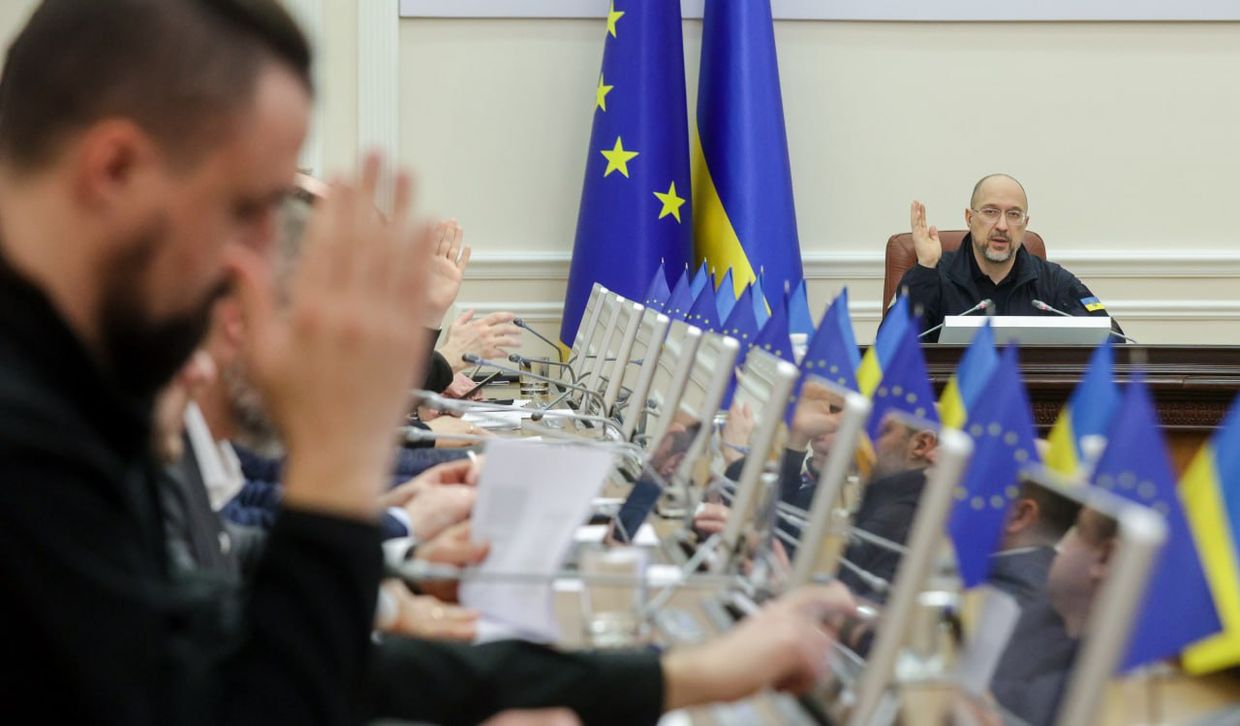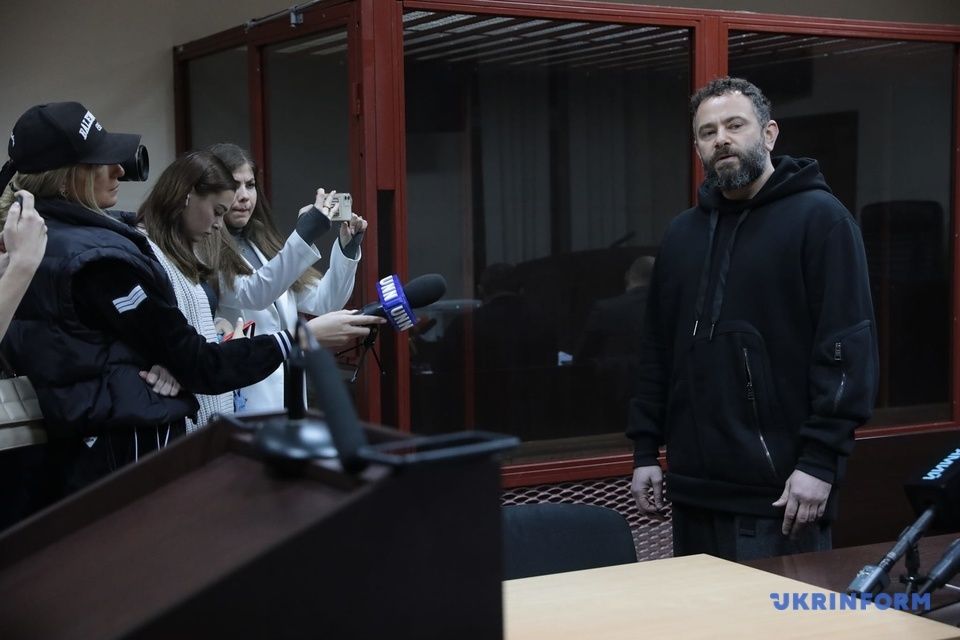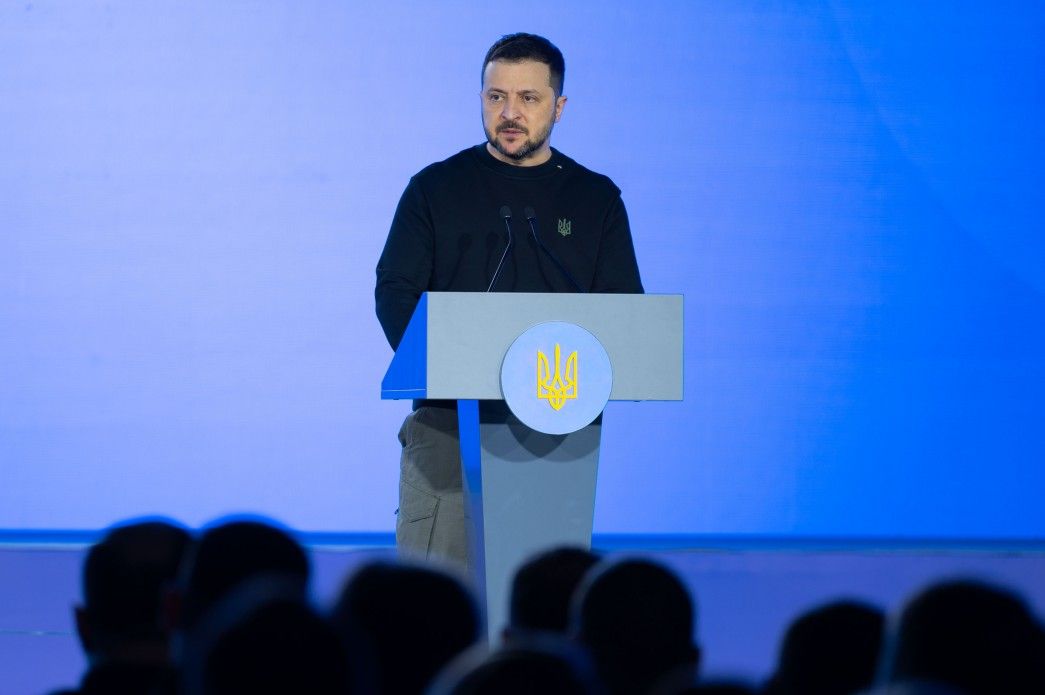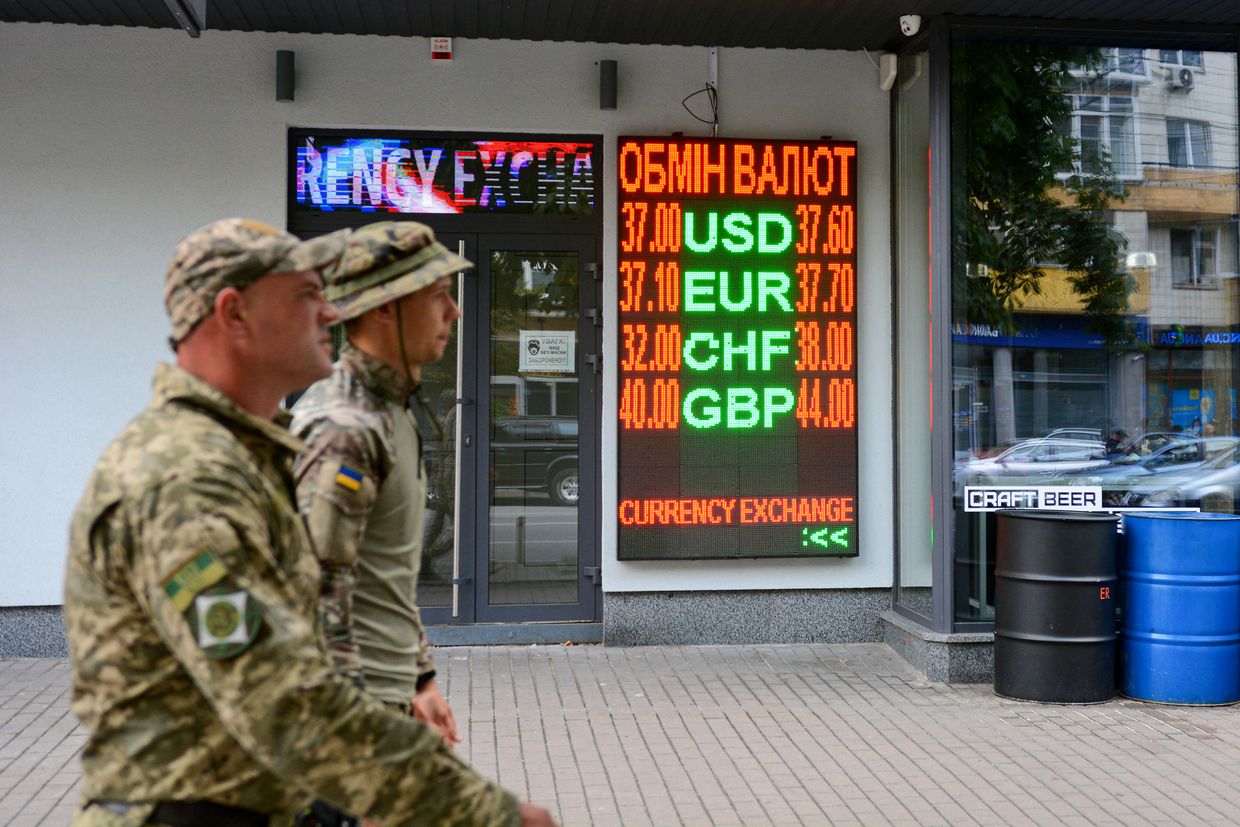MP Yaroslav Zhelezniak: Developments in Ukraine’s parliament on economic reforms, international obligations — Issue 47

Editor’s note: This is issue 46 of Ukrainian lawmaker Yaroslav Zhelezniak’s weekly “Ukrainian Economy in Brief” newsletter, covering events from March 4- 10, 2024. The digest highlights steps taken in the Ukrainian parliament related to business, economics, and international financial programs.
The Kyiv Independent is republishing with permission.
World Bank priorities
The President can no longer veto the draft law on financial markets, but the Presidential Office found a way to change it in favor of the National Securities and Stock Market Commission's head.
According to the Constitution of Ukraine, President Volodymyr Zelensky could have vetoed draft law #5865 on strengthening the independence and institutional capacity of the National Securities and Stock Market Commission (NSSMC) within a period of 15 days after the Presidential Office received a document for signing. However, he still can delay signing.
In Issue 46, we informed that the Head of the NSSMC Ruslan Mahomedov signed a letter in which he asked to veto draft law #5865 as it doesn’t include the provisions of increasing salaries and creates a conflict of interest for Mahomedov himself by banning a person to work in the NSSMC if he/she has a relative related to the professional market players.
According to our information, respective amendments were submitted to draft laws #9667-1 and #9456. These amendments are expected to meet the above mentioned demands of Mahomedov and change relevant provisions of draft law #5865. After that the president will sign draft law #5865 on financial markets and draft laws #9667-1 and #9456 which contain the amendments to it.
The adoption of the draft law #5865 was one of conditionalities for Ukraine to $1.5 billion from the World Bank guaranteed by Japan.
Obligations to the EU
The president signed the draft law on ethical lobbying.
On March 2, Zelensky signed draft law #10337 on ethical lobbying submitted by the Cabinet of Ministers. It’s one of Ukraine’s obligations within the EU integration process. The law comes into force in two months after the National Agency on Corruption Prevention (NACP) launches a public register, but no later than Jan. 1, 2025.
Moreover, the Verkhovna Rada will consider in the second reading draft law #10373 on administrative responsibility for violations under the lobbying law during the plenary meetings on March 20-21.
Other key economic issues
The Defense Committee is still working on amendments to the draft law on mobilization.
The Committee on National Security, Defense and Intelligence continues to work on the table of amendments to draft law #10449 on mobilization. On March18, the Committee was scheduled to consider the amendments under the numbers from 636 to 874 out of 4,269.
The majority of lawmakers who were on international business trips last week belong to the ex-pro-Russian faction.
According to the statistics, the week before plenary meetings in Rada were cancelled, the majority of lawmakers from ex-pro-Russian faction were abroad. Fifteen percent (5 out of 34) of lawmakers from the ex “Opposition Platform – For Life” faction were on international business trips.
At the same time only one out of 20 lawmakers from the Holos faction and seven out of 235 lawmakers of the Zelensky's faction Sluha Narodu were on business trips during this period, nor were any lawmakers from the other opposition factions “European Solidarity” and “Batkivschyna."
Permissions for business trips became a new mechanism of control over lawmakers from the Presidential Office. Decisions of who can go for the international business trip are made exceptionally by the president's office. This mechanism replaced the old ones to control the majority faction Sluha Narodu.
In the past the Presidential Office used encouraging methods for maintaining discipline among Sluha Narodu lawmakers such as money from the state budget for lawmakers’ districts, quotas for the appointments, financial benefits and so on.
Now punitive methods have replaced encouraging ones. The ban on international business trips is the lightest one. The Presidential Office even uses the control over law enforcement state bodies to open criminal cases against pro-presidential lawmakers and businesses related to them.
The President signed the draft law which should cancel a tax evasion scheme on the tobacco market.
Last week the Zelensky signed draft law #9662 with the amendments to the Tax Code regarding the digitalization of the tax services in Ukraine. Among other provisions the draft law should stop a tax evasion scheme on the illegal tobacco market regarding an exaggeration of raw material losses in tobacco production.
Moreover, on March 15, the Cabinet of Ministers approved the draft law on a slight increase in excise duties on tobacco products and transition from rates in hryvnia to euro from July 1, 2024. We expect the draft law to be submitted to the Verkhovna Rada any time soon.
Deputy head of the Presidential Office promised to present the cash back program by the end of March.
According to Forbes Ukraine, during the KIEF TALK public event Rostyslav Shurma, the deputy head of the Office of the President promised to present the Ukrainian cash back program "Buy Ukrainian" by the end of March.
As President Zelensky announced earlier, Ukrainian citizens will be able to get a refund of a part of the money spent on the purchase of certain Ukrainian goods and services.
According to Shurma, the program is already developed, but it still needs to be agreed with international partners. However, neither the Cabinet of Ministers, nor the Presidential Office haven’t told their estimates how much the implementation of the program will cost the state budget.
As we reported in Issue 45, the idea was met with vast criticism from Ukrainian economists, expert NGOs and business, such as Valerii Pekar, the Center of Economic Strategy, owner of the biggest private post operator Nova Posta and others.
Lawmakers submitted the draft law on launching the Specialized Economic Prosecutor Office to ensure the effectiveness of the Bureau of Economic Security after its restart.
Lawmakers submitted to the Verkhovna Rada the draft law #11087 on launching the Specialized Economic Prosecutor Office (SEPO) according to the best practices of SAP development.
The authors of the draft law are the group of lawmakers led by Yaroslav Zhelezniak. The SEPO won't be a brand new state body, it would be created by reorganizing the relevant departments in the General Prosecutor's Office and separating them into an independent body.
The main aim of the SEPO will be to provide an effective supervision of the Bureau of Economic Security pre-trial investigation and ensure that the bureau only investigates economic crimes within its exclusive jurisdiction.
This draft law is aimed to solve the problem on which some experts pointed out. For example, European Union Anti-Corruption Initiative emphasized that there is a serious risk that any improvements in the work of the bureau can be potentially can be reduced due to the obstacles caused by the lack of competence and integrity of the prosecutors responsible for the procedural management of the bureau's criminal proceedings.















